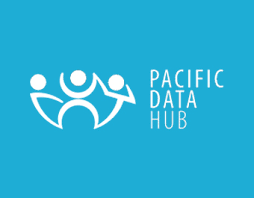Background
Vanuatu is a least developed country dedicated to a pathway of green growth that underpins its cultural, societal and environmental values. Vanuatu has a narrow economic base and is highly dependent on the tourism and agriculture sectors for economic development. The country has been ranked as the world’s most vulnerable country to climate change and natural disasters.1 In addition, the economy is characterized by distance from markets, lack of economies of scale and high dependence on petroleum fuel imports.
While gross domestic product growth has been relatively strong in the post-2008 crisis era, this has not translated to significant reductions in poverty. A large proportion of the population remains close to the poverty line and is vulnerable to becoming poor due to economic shocks, such as natural disasters and fuel price rises. Poverty among the rapidly growing rural population is the result of a lack of both stable economic conditions and access to basic services, including energy. Without access to clean, reliable energy, rural populations will continue to suffer from poor access to clean water, health services and education, and lack of opportunities for creation of income-generating activities.
National Priorities
Vanuatu’s National Sustainable Development Plan 2016-2030 (NSDP) expresses a clear dedication to green growth, stating that “a more inclusive, equitable and balanced approach is needed to promote sustainability, eradicate poverty, and enhance well-being and happiness”.
Access to reliable, secure and sustainable energy is key to unlocking Vanuatu’s development potential. Energy access helps to improve livelihoods and welfare, and diversify incomes. Vanuatu’s Nationally Determined Contribution (NDC) commits to generate 100% of its electricity with renewable resources by 2030. The National Energy Roadmap 2016-2030 (NERM) sets out a framework for providing electricity to a much higher percentage of ni-Vanuatu2, includes targets on renewable energy and energy efficiency, and supports the establishment of the National Green Energy Fund (NGEF).
About the Country Planning FrameworkIn line with the NSDP and NERM, Vanuatu’s 2017-2021 program of the Global Green Growth Institute (GGGI) will focus on rural energy access and the deployment of renewable energy technologies to stimulate rural livelihood creation and economic growth in the agriculture, fisheries and tourism sectors. Energy access must be increased to provide basic economic and social conditions that can lead to improved livelihoods and reduced poverty in all its forms.
Theory of ChangeThe energy sector in Vanuatu is characterized by extreme dependency on petroleum fuel imports—placing the country among the ten most vulnerable to oil price volatility in the Asia-Pacific region. Energy services are unreliable and unaffordable, particularly in rural communities, where only 10% of households, 42% of schools and 25% of health facilities have access to electricity.
GGGI’s central goal in Vanuatu is to support the country’s transition to a green economy through sustainable energy provision. There are two specific outcomes that are interlinked, and are aligned with the GGGI energy thematic strategy.
Data and Resource
| Field | Value |
|---|---|
| Publisher | Pacific Data Hub |
| Modified | 24 June 2022 |
| Release Date | 06 April 2020 |
| Source URL | https://pacificdata.org/data/dataset/54e9b132-2342-48c8-80f5-bf5397a28ae2 |
| Identifier | 54e9b132-2342-48c8-80f5-bf5397a28ae2 |
| Spatial / Geographical Coverage Location | Array |
| Relevant Countries | Vanuatu |
| License |
Public
![[Open Data]](https://assets.okfn.org/images/ok_buttons/od_80x15_blue.png)
|
